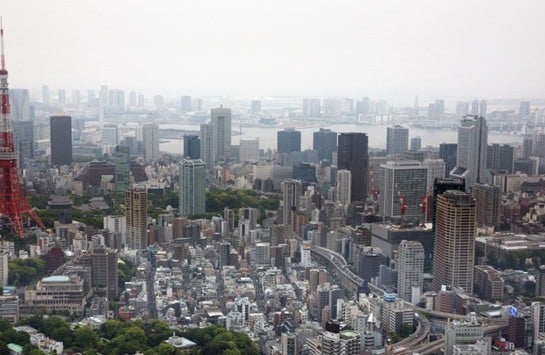
Tokyo leads the index ahead of fellow Olympic host cities London (United Kingdom), Rio de Janeiro (Brazil) and Paris (France). However, it is Paris that has hosted or is scheduled to host more events (14) than any other city from 2012-2025.
Nanjing, China, the only new entrant in the top 10, climbs the rankings alongside Minsk (Belarus), St. Petersburg (Russia) and Gold Coast (Australia), while Edmonton (Canada), Auckland (New Zealand) and Rotterdam (Netherlands) all drop out of the top 20.
Minsk is the biggest mover in the top 10. By securing events such as the 2019 European Games, 2020 IAAF World Race Walking Team Championships and co-hosting the IIHF World Championships in 2021, the city climbs 10 places to 12th in the index.

Click here to see the full GSI Cities Index
Significant moves within the top 100
How well do you really know your competitors?
Access the most comprehensive Company Profiles on the market, powered by GlobalData. Save hours of research. Gain competitive edge.

Thank you!
Your download email will arrive shortly
Not ready to buy yet? Download a free sample
We are confident about the unique quality of our Company Profiles. However, we want you to make the most beneficial decision for your business, so we offer a free sample that you can download by submitting the below form
By GlobalDataTampere (Finland) is the biggest climber within the top 100, moving up an impressive 152 places to sit 97th in the standings, having been awarded the 2022 IIHF World Championships alongside Helsinki in May 2017.
Delhi (India), the second biggest mover, climbs 114 places to sit 78th in the index. Delhi will host this year’s AIBA Women’s World Boxing Championships and has also secured the 2021 AIBA Men’s World Boxing Championships.
Hamburg (Germany) also considerably improves its ranking position, moving up to sit 52nd in the index, an improvement of 94 places after securing the Men’s World Handball Championship and the FIVB Beach Volleyball World Championships in 2019.
After securing the 2020 World All Round Speed Skating Championships and the World Sprint Speed Skating Championships in 2020, Hamar (Norway) makes significant progress and now features in the Top 100.
Hosts of major multisport games have also moved upwards, including Birmingham (United Kingdom) which moves up 23 places to 22nd after being awarded the 2022 Commonwealth Games. Buenos Aires (Argentina) has climbed up 20 places to 38th through hosting this year’s Youth Olympic Games.
Istanbul (Turkey) falls further than any other city in the top 100 of the GSI Cities Index, dropping 49 places to be ranked 99th overall. Istanbul loses points because the 2011 Wrestling World Championships no longer registers within the analysis period of the index, and the city has failed to secure any major world championships or multisport games since it co-hosted the FIBA Basketball World Cup for Women with fellow Turkish city Ankara in 2014.
Past and Future Global Sports Cities
London remains top of the Past GSI Cities Index, with a total of 11 events having taken place between 2012 and 2018. Rio de Janeiro remains in second place following its hosting of two of the highest-scoring events in the index, the Olympic Games 2016 and the Fifa World Cup 2014.
St. Petersburg, Pyeongchang and Gold Coast all make significant moves into the Top 20 of the Past GSI Cities Index.
Tokyo, the 2018 Global Sports City, also heads the Future GSI Cities Index, and it does so by a significant margin. Doha (Qatar), the future host of the 2022 Fifa World Cup, remains second in the ranking with three scoring events.
Paris, the capital city of France, is the largest mover in the 2018 Future GSI Cities Index after being awarded the 2023 Rugby World Cup and the 2024 Olympic and Paralympic Games. The city was previously unranked in the future index standings.
.PNG)
Now in its fourth year, the GSI Report 2018 comes in several smaller volumes, providing a greater focus on the specific impacts generated by sports events worldwide.
The Event Hosting & Bidding volume focuses on the hosts of events held in 2017 as well as the bidding landscape during the same year. A total of 80 events that took place throughout 2017 are analysed within the recent GSI Nations and Cities Index report.
IAAF WORLD CHAMPIONSHIPS LONDON 2017 NAMED SPORTCAL’S GLOBAL SPORTS EVENT 2017
USA CROWNED GLOBAL SPORTS NATION FOR THIRD CONSECUTIVE YEAR
You can pre-order your copy of the GSI Report 2018 (Events & Bidding) via Sportcal’s Report Store at a special early-bird rate of £750 / CHF 1,000 / US$1,000. Contact clientservices@sportcal.com to find out more.
GSI Nations and Cities Index
The GSI Nations and Cities Index is based on in-depth analysis of major multisport games and world championships over a rolling 14-year period, covering seven years in the past (including the current year) and seven years in the future. In total, 88 nations and 587 cities have hosted, or are scheduled to host events during this period.
Bids awarded up to and including 2 April 2018 have been included in the April 2018 index.
Each event is given a weighting based on its Global Sports Impact (GSI) Event Rating – this rating is calculated using the latest event data across a range of indicators which measures the size, scale and impact of an event.
The GSI Event Ratings are then attributed to the host nations and cities, producing the GSI Nations and Cities Index. A time weighting is given, so that events in the current year are worth 100 per cent of the rating value, while events in previous or future years are worth less.
The April 2018 index further increased the number of events analysed with 683 events across 155 categories, in 81 sports, including summer and winter Olympic sports and Olympic ‘recognised’ sports.









